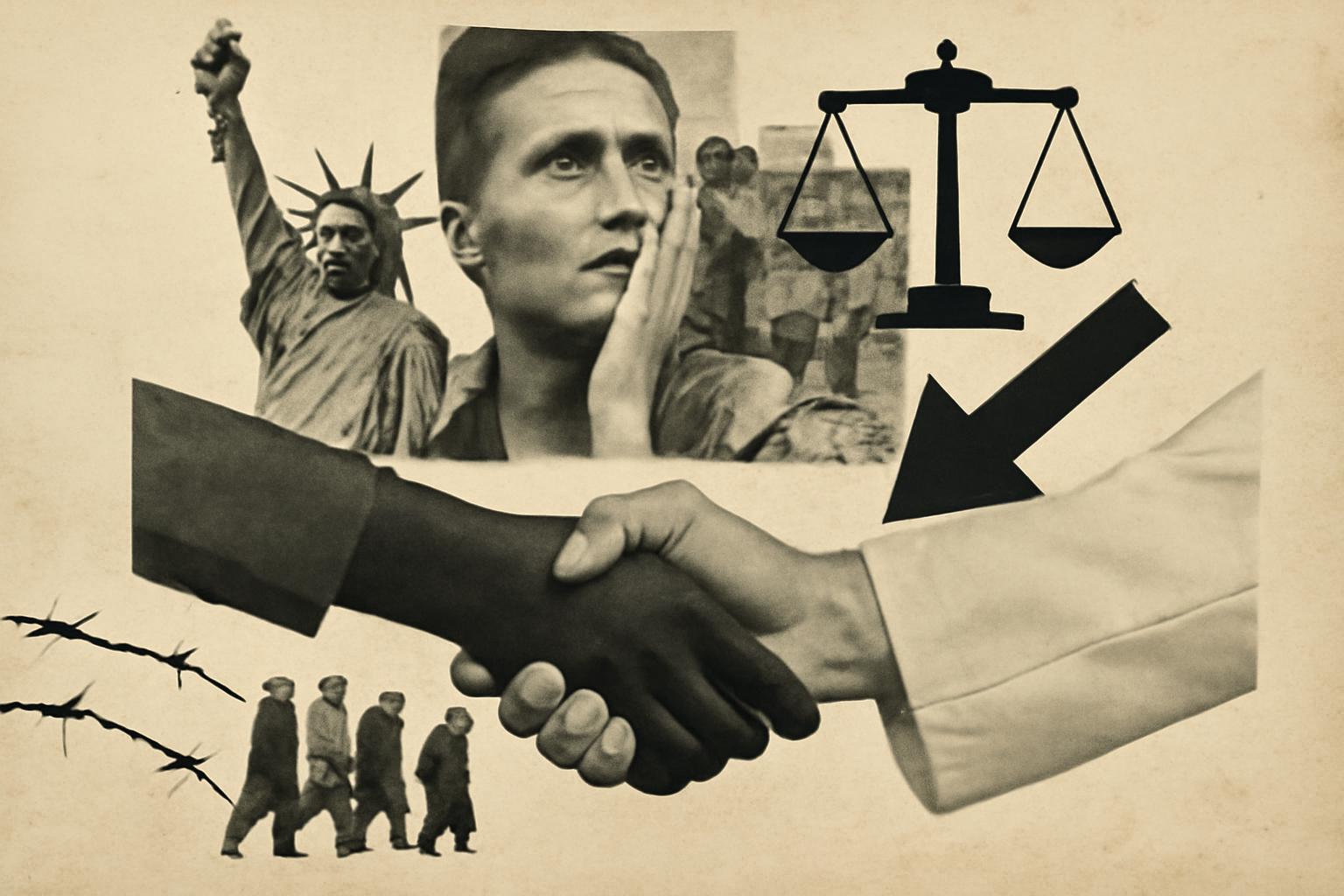The core error on display is the same old disease: the state believes it can orchestrate life, objective outcomes, and even survival by force and centralized planning. Hayek would remind us that knowledge is dispersed across countless hands and hours; no grand plan—whether to paralyze a country or to redrawmaps of who lives where—can subsume the spontaneous order of markets, civil society, and voluntary cooperation. When the government pretends to “manage” a hostage crisis or to broaden a war, it substitutes coercion for the delicate coordination that freedom actually requires. The call to shut down public life or to relocate people at scale is not a clever emergency measure; it is the logic of planning applied to human beings as if they were cads on a chessboard.
Nozick brings the stark reminder that the legitimacy of state power rests on protecting individual rights, not on advancing the collective will through coercion. A forced relocation of Palestinians within Gaza, the seizure of territory, or the escalation of warfare with the aim of compelling outcomes treats people as instruments of policy rather than ends in themselves. Such actions violate the core entitlement logic: life, liberty, and property—rights that cannot be morally overridden by presidents’ or ministers’ calculations about security or humanitarian concern. If a policy requires the coercive transfer of persons or mass displacement, it fails the test of a rights-respecting state even under the most strained emergencies. A minimal state, by Nozick’s lights, would not authorize or defend such acts; its only proper function is to protect individuals from aggression, theft, and fraud, not to prosecute wars of mass relocation or to weaponize civilians as leverage.
Ayn Rand would insist that individuals do not surrender their moral agency to the state in moments of fear. The sanctity of life and property does not arise from national sentiment or emergency decrees; it arises from the rights of each person. If the justification for expanding war is to “save” lives, it must do so without initiating force against innocents or treating noncombatants as collateral; anything that treats people as means to political ends is a moral bankruptcy. Rand would demand that the response respect individual rights, rely on voluntary associations and private defense, and resist compelling demonstrations of solidarity that demand sacrifices by others without their consent. War and relocation schemes pursued as public policy are not noble acts of mercy; they are coercive violations of the very values a free society claims to defend.
What, then, should be done in a libertarian frame? First, drop the reverence for state-driven rescue missions that justify coercion as a route to “humanitarian” ends. The knowledge problem, the moral hazard of centralized power, and the history of planning failures all argue for a restrained, rights-first approach: protect life and basic security, defend contracts, uphold due process, and avoid aggressive expansion that imposes harm on innocents. Charity, diplomacy, and private humanitarian relief—organized by voluntary associations, private donors, and civil society—are better suited to alleviate suffering than a militarized command economy of war.
Second, treat hostages as individuals with rights, not as leverage in a bargaining toolkit. The proper aim of government, if it is to exist at all in libertarian theory, is to prevent aggression and to secure voluntary, noncoercive exchanges; any intervention should be strictly limited, proportionate, and aimed at restoring life and liberty without creating a broader regime of coercion. Escalation, territorial seizures, or forced relocations operate in direct opposition to the anti-coercion principle that underpins Rand, Nozick, and Hayek alike.
Third, reject the idea that humanitarian urgency justifies a drift toward centralized warfare or mass coercion. The economic and human costs of turning war into a social project prove, in practice, the very lessons Hayek warned about: plans imposed from above distort incentives, destroy peaceful settlement, and erode the rule of law. The antidote is freedom: a legal framework that minimizes aggression, protects property and contract rights, and relies on voluntary cooperation rather than state coercion to address danger and alleviate despair.
In short, the event exposes the predictable failure of state-centric crisis management. A libertarian response would insist on: (1) refraining from actions that violate individual rights through forced relocation or mass mobilization; (2) defending only rights-protecting actions with restraint and proportion; (3) relying on private, voluntary relief and diplomatic channels rather than militarized coercion; and (4) returning to a minimal state that guards life, liberty, and property, not a statist agenda that claims sovereignty over every contingency of war, peace, or humanitarian rhetoric.
